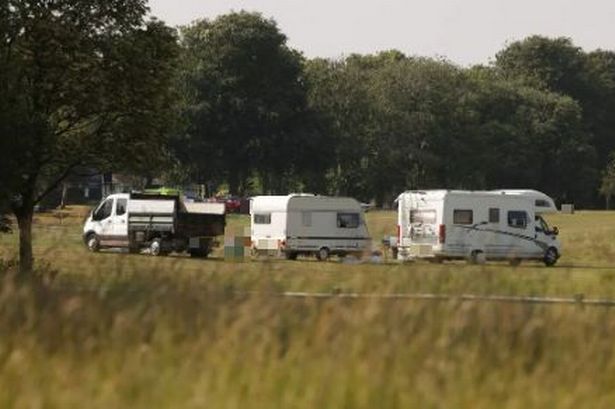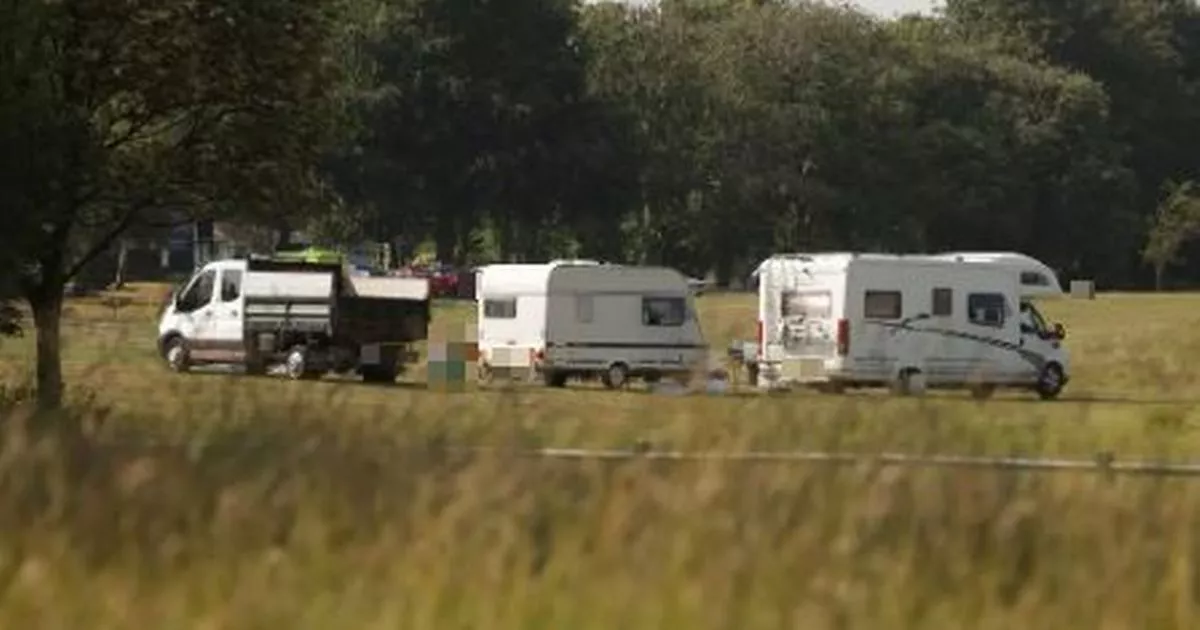Birmingham City Council is committed to introducing a ‘negotiated stopping’ programme, which would involve an unused piece of land being used by those in the travelling community for ‘short term stays’
Alexander Brock, Local Democracy Reporter
06:48, 23 Jun 2025
 Caravans at Swanshurst Park in Birmingham(Image: Nick Wilkinson/Birmingham Live)
Caravans at Swanshurst Park in Birmingham(Image: Nick Wilkinson/Birmingham Live)
Birmingham City Council’s plans to introduce temporary sites for travellers as part of a pilot programme have been delayed.
The council is committed to introducing a “negotiated stopping” programme, which would involve an unused piece of land being used by those in the travelling community for “short term stays”.
This initiative began amidst the council’s ongoing issues with its transit sites, which are authorised areas where travellers can be directed to when in the city. These sites typically provide hard standing for holding caravans, a secure boundary and basic sanitary provision, while some also provide electricity.
Read more: The Midlands most violent streets
However, one of the council’s two transit sites has suffered from repeated damage and vandalism while another has been home to “long-term occupants”. Against this backdrop, caravans have been spotted at a number of city parks and recreation grounds in recent weeks, including in Yardley, Billesley and Kings Heath.
A public protection committee heard back in March that a consultation with communities and businesses where negotiated stopping sites are being proposed was set to take place in April and May this year. The pilot would then have started the following month in June, according to a timetable published before the meeting.
However, the city council confirmed this week that potential sites are still being identified and the consultation will therefore take place “later in the year” instead.
The launch of a pilot scheme aimed at improving provisions for gypsies and travellers in Birmingham has been delayed, with the start date now moved from the initially planned June. A council spokesperson revealed on Thursday, June 19, that they are exploring a ‘negotiated stopping’ approach to pinpoint specific sites for short term stays.
“The council are looking to progress a negotiated stopping procedure to enable the identification of specific sites to direct gypsies and travellers to for short term stays,” said the spokesperson. Efforts are underway by council officers to find suitable locations for consultation with local stakeholders, including ward members, communities, and businesses.
“Council officers are working to identify potential sites to be taken forward for consultation with local ward members, communities and businesses where the sites are being proposed.”
The feedback from these consultations will shape the definitive list of sites for a year-long trial. “Consultation feedback will inform the final list of sites to be taken forward for a 12-month trial period.”
The council has expressed its dedication to the pilot and is set to begin consultations later this year.
They went on to say that the council remains “committed” to undertaking the pilot and is continuing to identify potential sites, which will now be taken forward for consultation “later in the year”. Leeds City Council’s success with a similar strategy was noted as an example.
The council added that Leeds City Council operate a successful negotiated stopping procedure. A report by the council earlier in the year acknowledged the financial burden and the shortfall in meeting the needs of the travelling community.
‘Significant costs to the council’ A council report acknowledged earlier this year that the existing provision in Birmingham does not meet the “minimum pitch provision needs” of the travelling community. The absence of a dedicated budget for managing current transit sites was also highlighted.
It added there is no allocated budget for the management of the existing transit sites. Consequently, Birmingham City Council is proceeding with the ‘negotiated stopping’ trial in hopes of better handling unauthorised encampments.
The council is therefore going ahead with the ‘negotiated stopping’ trial to see if the situation can be improved when it comes to unauthorised encampments.
The local council has pledged to take “everyone’s views into consideration” concerning the pilot scheme and is also focusing on “community cohesion”.
A recent report highlighted that Birmingham has seen 502 unauthorised encampments from 2018/19 to 2022/23, with a staggering 78 per cent on public land.
“The use of unauthorised encampments presents significant costs to the council, both in terms of managing and moving on sites and remediation to damage and refuse left following an encampment,” the report underlined.
It further explained that the ‘longevity’ of any encampment is influenced by the need to consider the welfare of local residents and the limited powers due to the absence of a designated transit site.
The document also noted that the ‘negotiated stopping’ method is “favoured by Gypsy Traveller communities as it provides a balanced and sensitive approach” and allows for greater flexibility.
“The council will need to assess the success of adopting the negotiated stopping approach before it can be embedded more broadly as a way forward,” the report concluded.
